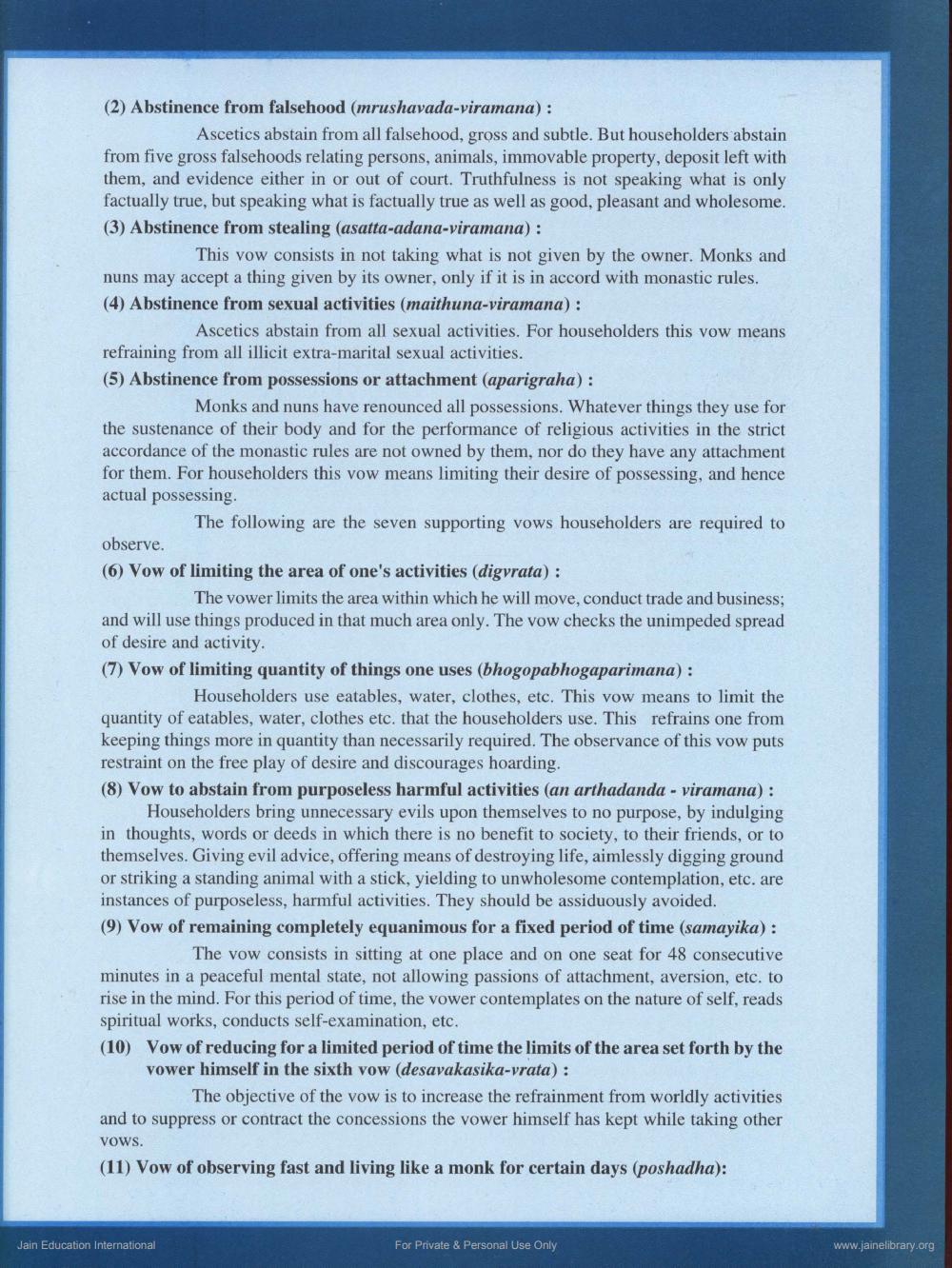________________
(2) Abstinence from falsehood (mrushavada-viramana):
Ascetics abstain from all falsehood, gross and subtle. But householders abstain from five gross falsehoods relating persons, animals, immovable property, deposit left with them, and evidence either in or out of court. Truthfulness is not speaking what is only factually true, but speaking what is factually true as well as good, pleasant and wholesome. (3) Abstinence from stealing (asatta-adana-viramana):
This vow consists in not taking what is not given by the owner. Monks and nuns may accept a thing given by its owner, only if it is in accord with monastic rules. (4) Abstinence from sexual activities (maithuna-viramana):
Ascetics abstain from all sexual activities. For householders this vow means refraining from all illicit extra-marital sexual activities. (5) Abstinence from possessions or attachment (aparigraha):
Monks and nuns have renounced all possessions. Whatever things they use for the sustenance of their body and for the performance of religious activities in the strict accordance of the monastic rules are not owned by them, nor do they have any attachment for them. For householders this vow means limiting their desire of possessing, and hence actual possessing.
The following are the seven supporting vows householders are required to observe. (6) Vow of limiting the area of one's activities (digvrata) :
The vower limits the area within which he will move, conduct trade and business; and will use things produced in that much area only. The vow checks the unimpeded spread of desire and activity. (7) Vow of limiting quantity of things one uses (bhogopabhogaparimana):
Householders use eatables, water, clothes, etc. This vow means to limit the quantity of eatables, water, clothes etc. that the householders use. This refrains one from keeping things more in quantity than necessarily required. The observance of this vow puts restraint on the free play of desire and discourages hoarding. (8) Vow to abstain from purposeless harmful activities (an arthadanda - viramana):
Householders bring unnecessary evils upon themselves to no purpose, by indulging in thoughts, words or deeds in which there is no benefit to society, to their friends, or to themselves. Giving evil advice, offering means of destroying life, aimlessly digging ground or striking a standing animal with a stick, yielding to unwholesome contemplation, etc. are instances of purposeless, harmful activities. They should be assiduously avoided. (9) Vow of remaining completely equanimous for a fixed period of time (samayika) :
The vow consists in sitting at one place and on one seat for 48 consecutive minutes in a peaceful mental state, not allowing passions of attachment, aversion, etc. to rise in the mind. For this period of time, the vower contemplates on the nature of self, reads spiritual works, conducts self-examination, etc. (10) Vow of reducing for a limited period of time the limits of the area set forth by the vower himself in the sixth vow (desavakasika-vrata):
The objective of the vow is to increase the refrainment from worldly activities and to suppress or contract the concessions the vower himself has kept while taking other vows. (11) Vow of observing fast and living like a monk for certain days (poshadha):
Jain Education International
For Private & Personal Use Only
www.jainelibrary.org




